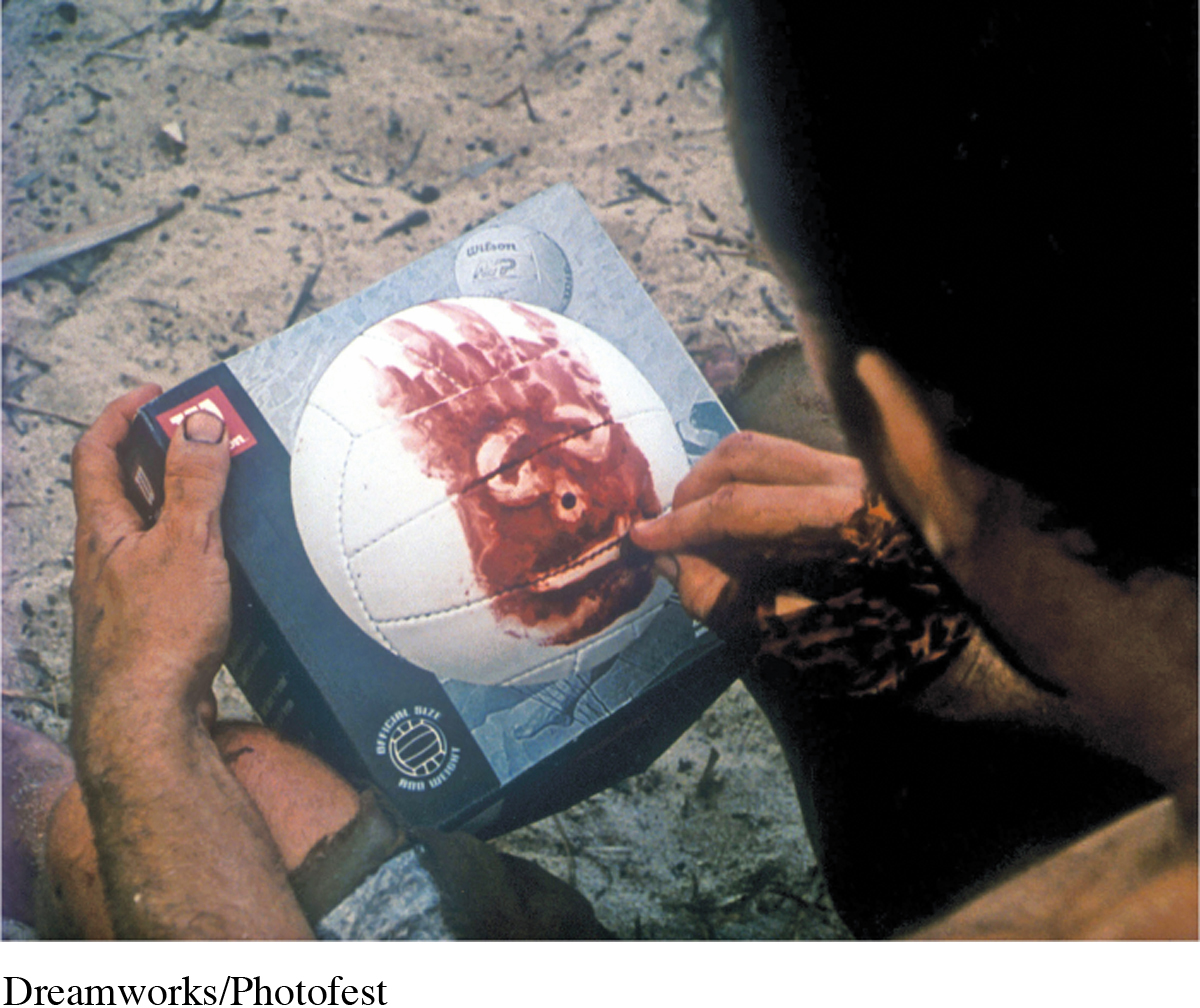MOTIVES FOR INTERPERSONAL COMMUNICATION
In the movie Cast Away (2000), Tom Hanks plays FedEx executive Chuck Noland, who survives a plane crash at sea, only to find himself alone on an uncharted island. Noland must improvise his survival, learning how to obtain food and fresh water, build a shelter, and create fire. But by far his biggest challenge is dealing with his isolation from others. Realizing that he will be presumed dead by all who knew him and likely live out the rest of his days alone on the island, Noland sinks into despair. To emotionally save himself, he creates a friend with whom he can interact: a volleyball named Wilson. Wilson becomes his constant companion, to whom he talks incessantly.
17

Discussion Prompt: Communication Is Irreversible
Ask students to think about what life would be like if we all had a DVR for our daily lives. What if they could hit Pause when needed? What would they record if they couldn’t be present? Would they like to hit Fast Forward or Rewind? Have them consider times when they have thought, “I wish I could take that back” after communicating something they regretted. Then, in pairs or as a class, have them discuss the power of irreversibility.
Since Cast Away’s release more than a decade ago, “Wilson the volleyball” has become iconic. Numerous YouTube videos spoof Noland’s conversations with Wilson; you can buy Wilson T-
Interpersonal Communication and Human Needs Psychologist Abraham Maslow (1970) suggested that we seek to fulfill a hierarchy of needs in our daily lives. When the most basic needs (at the bottom of the hierarchy) are fulfilled, we turn our attention to pursuing higher-
18

Next are self-
Interpersonal Communication and Specific Goals In addition to enabling us to meet fundamental needs, interpersonal communication helps us meet three types of goals (Clark & Delia, 1979). During interpersonal interactions, you may pursue one or a combination of these goals. The first—
Discussion Prompt: Specific Goals of Students
Ask students to consider how they use interpersonal communication to achieve self-
You also have instrumental goals—practical aims you want to achieve or tasks you want to accomplish through a particular interpersonal encounter. If you want to borrow your best friend’s prized Porsche for the weekend, you might remind her of your solid driving record and your sense of responsibility to persuade her to lend you the car.
Finally, you use interpersonal communication to achieve relationship goals—building, maintaining, or terminating bonds with others. For example, if you succeed in borrowing your friend’s car for the weekend and accidentally drive it into a nearby lake, you will likely apologize profusely and offer to pay for repairs to save your friendship.